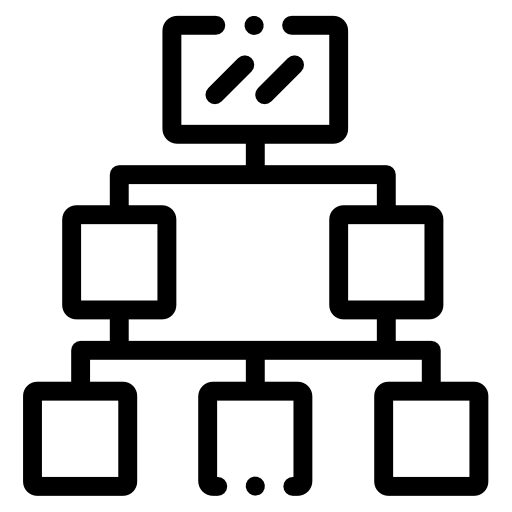
Plataforma de Cursos
Plataforma de ventas + Aula virtual para la venta de cursos online.

Our expert team in Odoo is dedicated to transforming our clients’ business management through customized and efficient solutions. With years of experience and a deep understanding of the Odoo ecosystem, we provide implementation, customization, and support services tailored to the specific needs of each business.
From the integration of sales and accounting modules to the optimization of human resources and logistics, our comprehensive approach ensures superior performance and continuous improvement.
Odoo is much more than just business management software; it is a complete and flexible platform that can transform the way your company operates and grows. With a wide range of integrated applications covering areas such as sales, CRM, inventory, accounting, and human resources, Odoo offers a comprehensive solution for modern business needs.
Its open-source approach means that not only do you have access to the software for free, but you can also customize and adapt it according to the specific needs of your company. Adopting Odoo as the main technology for business management offers a number of compelling benefits.
Firstly, the full integration between the different Odoo applications ensures a smooth flow of data and processes, increasing efficiency and reducing duplication of efforts. Additionally, the flexibility and scalability of Odoo mean it can grow along with your business, adapting as your needs change and evolve.
This provides a long-term investment that not only solves current challenges but is also prepared to face future challenges. With an intuitive interface and an active community of users and developers, Odoo is a powerful and accessible choice for any company looking to optimize its operations and achieve new levels of success.

Odoo offers a complete suite of integrated business applications that allow companies to manage all their operations from a single platform. This eliminates the need to use multiple independent systems, reducing data duplication and improving operational efficiency.

Odoo is highly modular, meaning you can start with the applications you need and add more as your business grows. This flexibility allows businesses of all sizes to tailor Odoo to their specific needs and scale seamlessly as their requirements change.

Odoo has a modern, easy-to-use user interface that facilitates employee adoption. The optimized user experience reduces training time and increases productivity, enabling users to access information and perform tasks efficiently.

While there are enterprise versions with fees, Odoo also offers a free open-source version, which can mean significant savings compared to other proprietary ERP solutions. Additionally, implementation and customization costs are often lower due to its modular nature and community support.

Odoo is regularly updated with new features and improvements, ensuring that businesses always have access to the latest technological innovations. Moreover, there is a large community of developers and a wide range of support services available to assist with any issues or customizations.

Odoo allows for high customization to meet the specific needs of each business. From workflow customization to creating personalized reports, companies can adjust Odoo to work exactly as needed. Additionally, being open-source, developers can modify and extend the software as necessary.

We provide strategic advice on how to maximize Odoo to achieve the company’s business objectives. This can include long-term planning, identifying growth opportunities, and aligning Odoo with the overall company strategy.

We assist companies in implementing Odoo from scratch, including installation, initial configuration, and data migration if necessary. This service ensures a successful Odoo startup tailored to each company’s specific needs.

We can develop custom modules for Odoo that add specific functionalities not covered by the standard applications. These modules can be fully adapted to the unique business processes of each client.

We help integrate Odoo with other software systems used by the company, such as accounting systems, CRM, or eCommerce. This ensures smooth data communication between different platforms.

We offer continuous technical support services to ensure Odoo runs smoothly and to resolve any technical issues that may arise. We also provide regular updates and system maintenance.

We conduct audits of existing Odoo installations to identify areas for improvement and ensure best practices are being used. This can include reviewing the configuration, security, and system performance.

We offer training programs for both end-users and Odoo administrators. These programs help maximize productivity and efficiency by ensuring that staff fully understand how to use Odoo effectively.

Odoo migration involves transferring data and configurations from an older version to a newer one. It requires planning, data preparation, effective migration, configuration, testing, and training for a successful transition.
Accounting
Invoicing
Expenses
Spreadsheet (BI)
Documents
Electronic Signature
CRM
Sales
Point of Sale – Stores
Point of Sale – Restaurant
Subscriptions
Rental
Mercado Libre
Amazon
Website Builder
eCommerce
Blog
Forum
Live Chat
eLearning
Inventory
Manufacturing
PLM (Product Lifecycle Management)
Purchase
Maintenance
Quality
Employees
Recruitment
Time Off
Appraisal
Referrals
Fleet
Social Marketing
Email Marketing
SMS Marketing
Events
Marketing Automation
Surveys
Project
Timesheets
Field Service
Helpdesk
Planning
Appointments
Discuss
Approvals
IoT
VoIP
Knowledge
WhatsApp

Hosting Odoo in Odoo’s enterprise cloud offers a flexible and scalable solution to host your Odoo instance on secure and reliable servers. With global access, automatic updates, and a managed environment, it provides a robust platform to run your business management system without infrastructure worries.
Security in Odoo is based on multiple layers of protection, including user authentication, encryption of data in transit and at rest, granular access control, and activity auditing. With constant updates and security patches, Odoo ensures comprehensive protection of business data.


Odoo’s scalable platform provides a solid foundation for business growth by allowing the addition of new applications and users as needed. With the ability to adapt to increased demand and expanding operations, Odoo ensures flexible support for growing businesses.

La integración del marketplace ha sido un éxito total. Ahora podemos llegar a muchos más clientes y nuestras ventas han aumentado considerablemente. ¡Gracias!

Estamos muy contentos con la integración del marketplace. Ha sido muy fácil de configurar y utilizar. El equipo de soporte fue muy útil y nos ayudó con todo lo que necesitábamos.

La integración del marketplace ha sido una gran inversión para nuestro negocio. Nos ha permitido ahorrar tiempo y dinero, y nos ha dado más tiempo para centrarnos en nuestros clientes

Es una forma fácil y eficaz de llegar a un público más amplio. Una gran integración sin duda.

Estamos muy satisfechos con los resultados de la integración del marketplace. Ha superado nuestras expectativas.

Fueron muy profesional y nos ayudó a alcanzar nuestros objetivos.

No podríamos estar más contentos con la integración del marketplace. Ha sido una gran ayuda para nuestro negocio.

La integración del marketplace ha sido un cambio radical para nuestro negocio. Ahora somos mucho más competitivos.

La integración del marketplace ha sido una de las mejores decisiones que hemos tomado para nuestro negocio.
Integrating Odoo into your company can be a significant process, but here are some steps to get started:
Integrating Odoo into your company can be a significant project that requires careful planning and consideration of various requirements. Here are some important requirements to consider before integrating Odoo into your company:
By addressing these requirements and carefully planning the integration of Odoo into your company, you will be better prepared to maximize the benefits of this business management platform.
The Odoo Enterprise and Odoo Open Source versions primarily differ in their features, support, and licensing model:
Odoo Enterprise:
Odoo Open Source:
In summary, the main difference between Odoo Enterprise and Odoo Open Source lies in the additional features, professional support, and licensing model. Odoo Enterprise offers advanced functionalities and dedicated support in exchange for an annual subscription, while Odoo Open Source is free but with limited features and support.
Security in Odoo is a critical aspect addressed through multiple layers and mechanisms to protect the data and operations of the companies using the platform. Below are some of the key aspects of security in Odoo:
Access Control and Authentication:
Data Transmission Security:
Threat Protection:
Data Integrity:
Development Security:
Cloud Security:
By implementing these and other security measures, Odoo ensures to provide a secure environment for companies to manage their critical operations and protect their sensitive information.
La seguridad en Odoo es un aspecto crítico que se aborda a través de
Contact us, we provide you with a free consultation and help you successfully execute your AI project.
Error: Formulario de contacto no encontrado.
Odoo ERP is an open-source suite of business applications that covers various areas such as sales, inventory, accounting, human resources, and more.
Some benefits include process optimization, centralized data, increased operational efficiency, and improved decision-making.
Odoo ERP offers a wide range of modules, including sales, inventory, accounting, human resources, CRM, and more. The most important modules depend on the specific needs of your company.
Infrastructure requirements include servers or cloud services with sufficient processing power, storage, and network capacity to run Odoo ERP.
Yes, Odoo ERP has integration capabilities and can be integrated with other enterprise systems through APIs and data migration tools.
Odoo ERP is highly customizable and can be adapted through configuring fields, forms, workflows, and specific processes.
Data in Odoo ERP is managed through a centralized database that stores information from all modules and applications.
Odoo ERP has robust security measures, including user authentication, role-based access control, and data encryption.
Data migration to Odoo ERP is carried out through data import tools or custom scripts that transfer information from existing systems to Odoo.
Odoo provides technical support through its community, online forums, documentation, and paid support services. It also offers online and in-person training.
Updating Odoo ERP to new versions is done through the Odoo administration panel, where available updates can be downloaded and installed.
The integration process of Odoo ERP involves assessing needs, project planning, installation and configuration, customization, data migration, training, and ongoing support.
The time required to integrate Odoo ERP varies depending on the size and complexity of the company, as well as the specific project requirements. It can take anywhere from a few weeks to several months.
Costs may include software licenses, professional services for implementation and customization, IT infrastructure, training, and ongoing support.
Some security measures include ensuring proper access to data, implementing regular backups, and regularly updating the software to patch vulnerabilities.
Yes, Odoo ERP offers mobile applications for iOS and Android that allow access to key functions from mobile devices.
Users and roles in Odoo ERP are managed through the administration panel, where users can be created, roles assigned, and access permissions defined.
Odoo ERP offers a variety of predefined reports and analysis tools that allow businesses to gain insights into their operations and make informed decisions.
Odoo ERP has a wide range of third-party integrations available through its app store, which include payment services, marketing tools, productivity apps, and more.
You can measure the success of Odoo ERP integration through metrics such as improved operational efficiency, cost reduction, increased productivity, and customer satisfaction.

Odoo is an all-in-one, flexible, and open-source business management platform that integrates a wide range of applications to manage various business areas such as sales, CRM, inventory, accounting, and human resources.
Its modular approach allows businesses to easily adapt and customize the platform according to their specific needs, adding or removing applications as necessary. This provides a highly scalable solution that can grow with the company as its requirements evolve.
Its modular approach allows businesses to easily adapt and customize the platform according to their specific needs, adding or removing applications as necessary. This provides a highly scalable solution that can grow with the company as its requirements evolve.